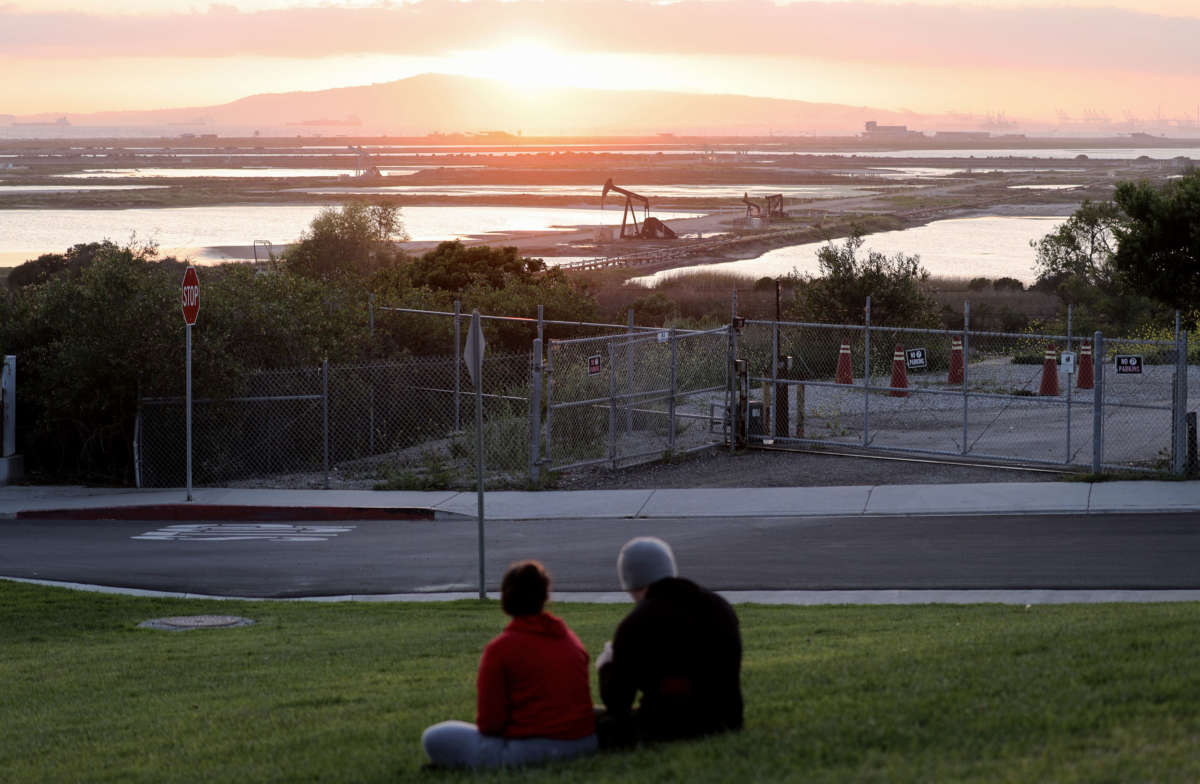Part of the Series
Despair and Disparity: The Uneven Burdens of COVID-19
April 20, 2020, may not be remembered as the day when marijuana briefly became a more valuable commodity than petroleum. It happened, though, right smack dab in the middle of the country’s unofficial 4/20 weed holiday. Some ironies require no enhancement, and a Hollywood script with this plot twist would get laughed out of the room, but it happened all the same.
On Monday afternoon, as the COVID pandemic ran roughshod over governments and hospitals and the daily lives of billions, almighty oil was abruptly worth less than zero. In other words, if you had oil, you had to theoretically pay to get rid of it, instead of getting paid for delivering it. It’s the equivalent of gassing up at your local station and having the attendant run you out a fiver for the privilege of depleting his stock.
The price of a barrel of oil on Monday stood at -$37.63. Note the minus sign. Prior to yesterday, the lowest price a barrel of oil ever fetched on the market was $10 back in 1986. Note the absence of the minus sign. This is beyond unprecedented territory. We have run headlong through the looking glass into a surreal and disintegrating economic landscape that, again, lays bare the inherent weaknesses and inequities of the current hypercapitalist system.
What happened is a perfect example of the supply-and-demand principle that undergirds the system. The pandemic hit, the world was told to stay home, and the demand for petroleum plummeted. The juggernaut that is global oil production, however, cannot stop on a dime and give you nine cents change. It kept producing and producing and producing, and a month later, nobody has room to store what was produced. “Black Gold” abruptly became an enormous burden, and the market reacted.
That maxed capacity means if you have oil on your hands, you’re going to be paying someone to store it instead of profiting from it, and that’s what is killing the price. By the all-holy rules of basic capitalism, any industry that gets so far out over its skis that its core product is rendered worthless deserves to collapse. The grocer who consistently buys too much produce, the restauranteur who overstocks her kitchen, every small business in the country plays the supply-and-demand balancing act to their peril.
But this is oil we’re talking about, the “lifeblood of the global economy,” or at least it used to be. The fact that petroleum zeroed out on 4/20 does not in any way diminish the choking grip that industry holds upon our country and the wider world. The Middle East, Russia, China, the United States, all have pinned their economies on the eternal worth of oil. That decision just got weird.
So, of course, let us expect the Republicans in Congress and the featherweight in the White House to start pushing hard for a Big Oil bailout. Working people can take a number; the big dogs need to eat.
“Lawmakers and advocacy groups alike are sounding the alarm on the dangers of a coming Big Oil bailout,” writes Alexis Goldstein for Truthout. “The Center for International Environmental Law released a report summarizing the unprecedented lobbying spree fossil fuel companies are undertaking to try and exploit the global pandemic, including: pushing for regulatory rollbacks, suspension of environmental law enforcement, criminalization of protest and seeking direct bailouts.”
Goldstein argues that now, right now, is the time for a Green New Deal that pushes the U.S. economy beyond the need to satisfy the voracious appetites of Big Oil. “It would not only end our current dependence on the decisions of petrostates like Saudi Arabia and Russia,” she writes, “it would also create needed jobs for an economy that will be shrinking for months (if not years) to come. And most importantly, a Green New Deal would ensure that the United States is not once again caught utterly unprepared by a crisis.”
Petroleum has been a part of my life since my mother smeared Vaseline on my bare baby bottom. It was a rite of passage to learn how to operate the gas pump and smell the stink of those fumes, and later to gas up my first car and go roving in an act of automotive “freedom.” September 11 happened because of oil, as did the ongoing war in Iraq. Oil has owned politics since it was first discovered. Oil has torn up the world, polluted the air and the water. Oil gives with one hand, and takes twice as much with the other. Oil is poison.
On Monday, thanks to a strange confluence of events, oil became worthless. Within the context of the reality we have all come to either accept or endure, the zeroing out of oil prices was the equivalent of being able to reach your hand through the wall and grab the beer you left in the next room. It broke the rules of reality as we have been taught to understand them. It showed that oil can cease to be important without the Earth tumbling into the sun.
Now that we know it can happen, let’s really start talking about what happens next.
Media that fights fascism
Truthout is funded almost entirely by readers — that’s why we can speak truth to power and cut against the mainstream narrative. But independent journalists at Truthout face mounting political repression under Trump.
We rely on your support to survive McCarthyist censorship. Please make a tax-deductible one-time or monthly donation.
